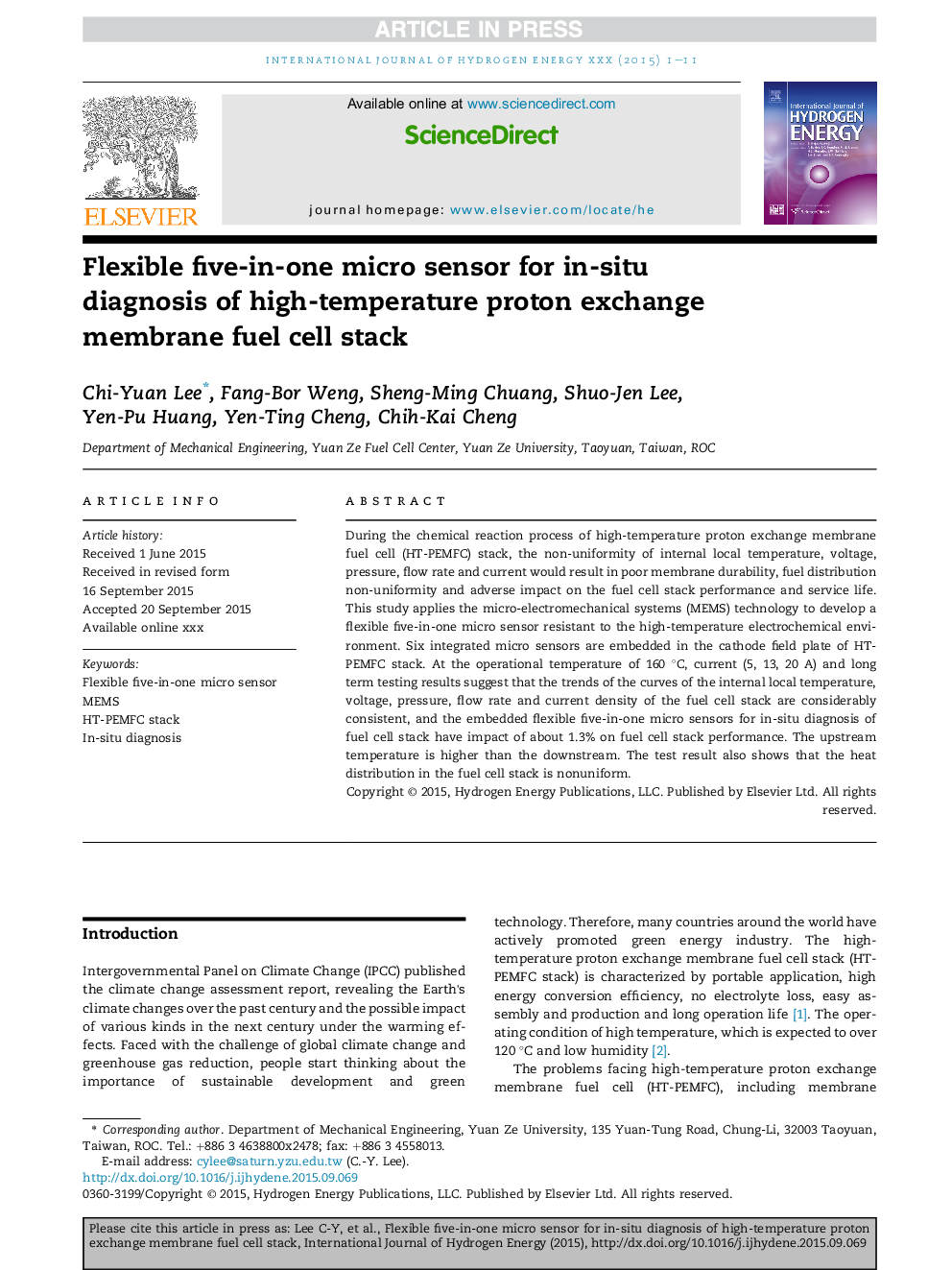| Article ID | Journal | Published Year | Pages | File Type |
|---|---|---|---|---|
| 7713582 | International Journal of Hydrogen Energy | 2015 | 11 Pages |
Abstract
During the chemical reaction process of high-temperature proton exchange membrane fuel cell (HT-PEMFC) stack, the non-uniformity of internal local temperature, voltage, pressure, flow rate and current would result in poor membrane durability, fuel distribution non-uniformity and adverse impact on the fuel cell stack performance and service life. This study applies the micro-electromechanical systems (MEMS) technology to develop a flexible five-in-one micro sensor resistant to the high-temperature electrochemical environment. Six integrated micro sensors are embedded in the cathode field plate of HT-PEMFC stack. At the operational temperature of 160 °C, current (5, 13, 20 A) and long term testing results suggest that the trends of the curves of the internal local temperature, voltage, pressure, flow rate and current density of the fuel cell stack are considerably consistent, and the embedded flexible five-in-one micro sensors for in-situ diagnosis of fuel cell stack have impact of about 1.3% on fuel cell stack performance. The upstream temperature is higher than the downstream. The test result also shows that the heat distribution in the fuel cell stack is nonuniform.
Keywords
Related Topics
Physical Sciences and Engineering
Chemistry
Electrochemistry
Authors
Chi-Yuan Lee, Fang-Bor Weng, Sheng-Ming Chuang, Shuo-Jen Lee, Yen-Pu Huang, Yen-Ting Cheng, Chih-Kai Cheng,
